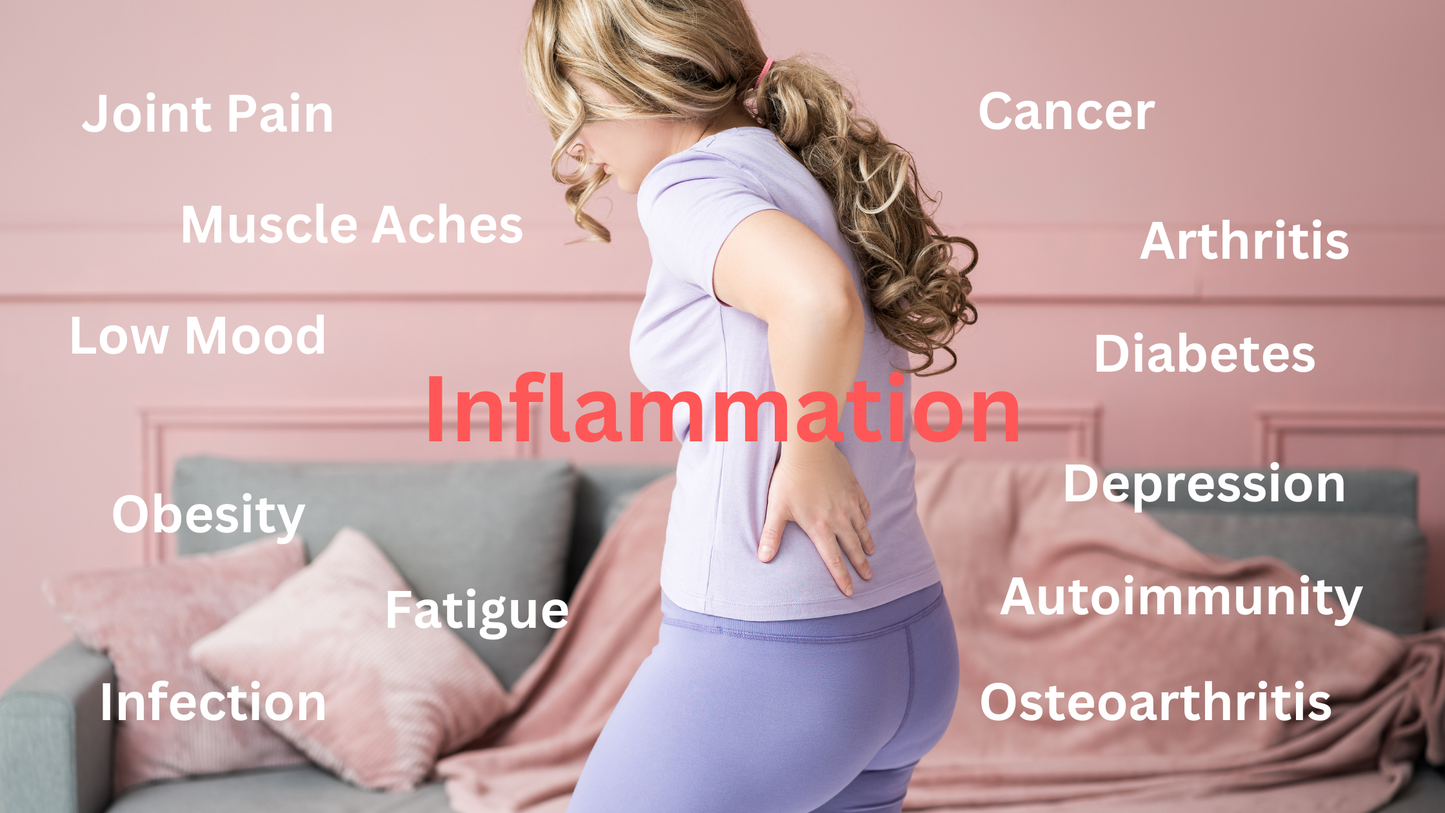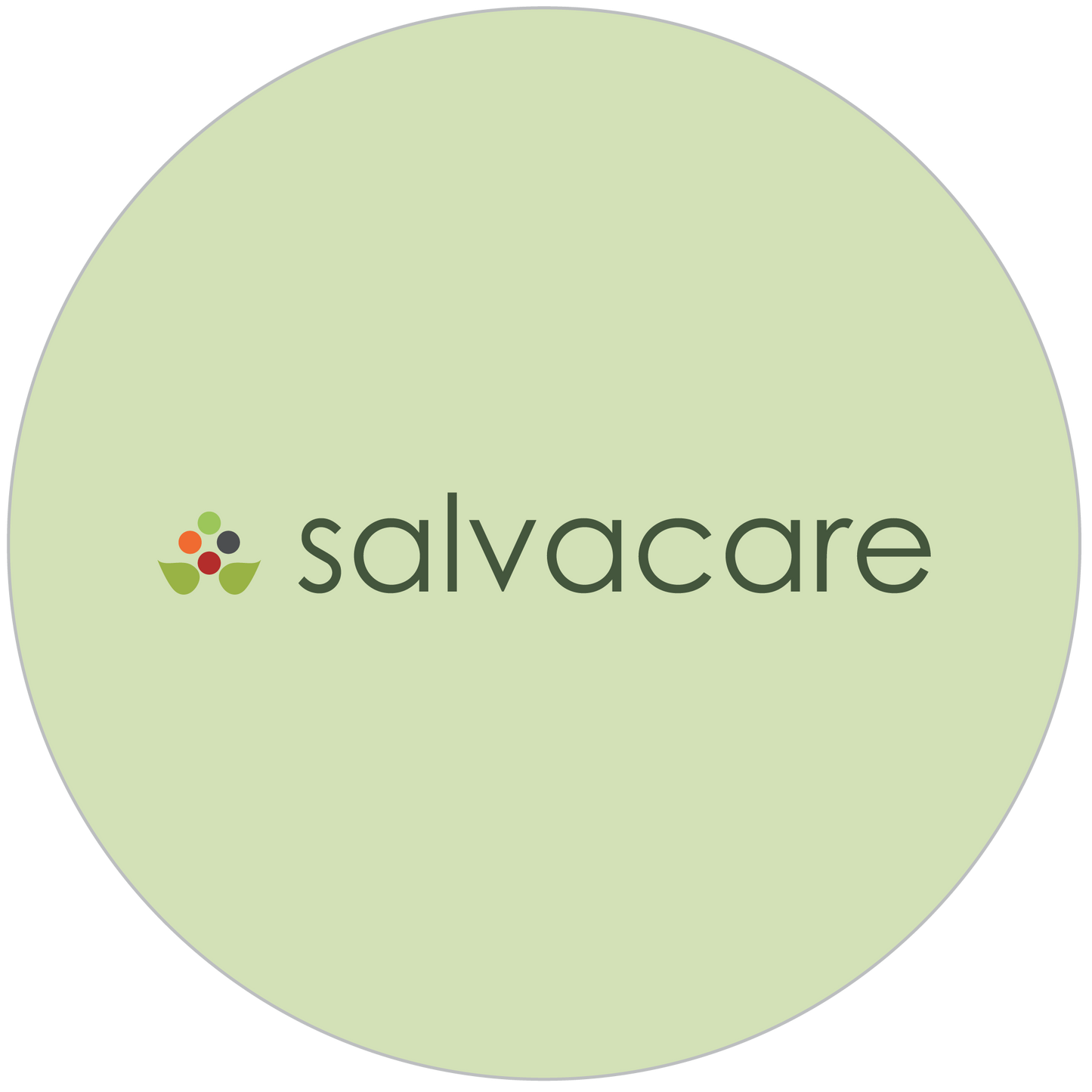
Do you have aches and pain?
Are you fatigued?
Inflammation is very likely an underlying driver!
We know it may seem like we're constantly talking about inflammation again, but we come across so many people who have a number of issues - aches and pains, constantly fatigued, joint stiffness - and we bring up inflammation they often say “oh no I don’t have inflammation”.
But when we dig deeper, the signs of inflammation are all there: joint pain, stiffness, fatigue, mood changes, digestive discomfort, swelling in the ankles, weight fluctuations, frequent infections... and still, the response is "No, it's not inflammation."
At first, many of these symptoms are subtle, and people start to write them off as "just part of getting older." But here's the thing: it's not aging—it's inflammation! Sure, as we age, our bodies slow down, but pain and discomfort beneath the surface are often caused by inflammation.
Work towards resolving your inflammation today, to keep your quality of life tomorrow!
This is why we keep talking about inflammation. Many people don’t fully understand it, and unfortunately, it’s not always obvious. Chronic, low-grade inflammation can be very subtle at first, and you may have been putting up with it for years. Over time, this inflammation can escalate from being a quiet issue to one that impacts your daily life, causing pain and discomfort that disrupts your overall well-being.
In this post, we’ll break down what inflammation is, how it can become harmful, and the steps you can take to manage it for better health.
What Is Inflammation?
Inflammation is the body’s natural defense mechanism—it's part of the healing process that helps fight off infection, clear out toxins, and repair damaged tissue. However, when inflammation persists or becomes overactive, it can turn into a silent disruptor, contributing to chronic health conditions and speeding up the aging process.
At its core, inflammation is the immune system’s response to injury or infection. It helps us heal by:
- Destroying harmful pathogens
- Removing cellular debris
- Promoting tissue repair
While acute inflammation is short-term (like the swelling from a sprained ankle), chronic inflammation is a long-term, systemic issue. This persistent inflammation can damage healthy tissues and lead to conditions like heart disease, diabetes, neurodegenerative disorders, and autoimmune diseases.
How Chronic Inflammation Develops
Several factors can trigger and sustain chronic, low-grade inflammation, including:
- Lifestyle Choices: A poor diet, sedentary behaviour, and chronic stress can all amplify inflammation.
- Environmental Exposures: Pollutants, chemicals in household products and skin care can increase the body's inflammatory burden especially if you are already making poor lifestyle choices.
- Pathogens: Persistent infections, like gum disease or H. pylori can contribute to long-term inflammatory. And if your lifestyles includes regular environmental exposures, infections can become even more frequent.
- Unresolved Acute Inflammation: Sometimes, our bodies struggle to turn off the inflammatory response after acute injuries or infections, leading to ongoing damage and prolonged inflammation.
- Aging: As we age, our immune system weakens, making us more susceptible to "inflammaging"—a phenomenon where inflammation increases as we grow older. However, lifestyle choices, environmental exposures, and unresolved inflammation contributes to how we age.
The impact of Chronic Inflammation
Chronic inflammation doesn’t always come with dramatic symptoms, but its subtle effects can have a significant impact on your quality of life. Common symptoms include:
- Brain fog and low mood
- Fatigue and poor recovery
- Muscle and joint stiffness, pain
- Digestive discomfort
- Increased susceptibility to infections
Unchecked inflammation accelerates aging, weakens the immune system, and paves the way for conditions like cardiovascular disease, osteoporosis, autoimmune conditions and cognitive decline.
How to Tame Inflammation
The good news is that you can take proactive steps to reduce inflammation and support your body’s natural balance. Here are some effective strategies:
-
Adopting an Anti-Inflammatory Diet: Focus on whole foods rich in antioxidants, healthy fats, and fibre. Minimize processed foods, sugar, and trans fats (fast foods). This helps reduce the overall inflammatory load on your body.

- Reduce chemicals and toxins: Eliminate or reduce chemicals in your daily life. Start with simple steps, like using a water filter, switching out your plastic containers for glass or stainless steel, start using low-tox skincare products. Even small changes make a difference!
- Exercise Regularly: Physical activity promotes the release of anti-inflammatory molecules. It doesn’t have to be intense or long—start small, like a 5–15 minute chair workout while watching TV or walking an extra block to your destination.
-
Prioritize Sleep: Poor sleep exacerbates inflammation. Aim for 7–9 hours of quality sleep each night. Incorporate relaxation techniques like breathing exercises or "legs up the wall" yoga before bed, and consider adding protein or collagen powder to support stable blood sugar levels overnight.
-
Manage Stress: Practices such as meditation, yoga, and deep breathing can calm your nervous system and reduce inflammation. Reducing stress is a powerful way to protect your body from ongoing inflammation.
-
Address Root Causes: Work with a healthcare provider to identify potential triggers like food sensitivities, infections, or hormonal imbalances.
-
Consider Supplements: Support your body's inflammatory response with supplements like ModeraFlam, which helps modulate inflammatory cytokines. Start with two capsules on an empty stomach.
Taking steps now to address inflammation can help you enjoy a better quality of life tomorrow.
Don’t wait until subtle symptoms worsen.
Start making changes today to keep inflammation in check!




